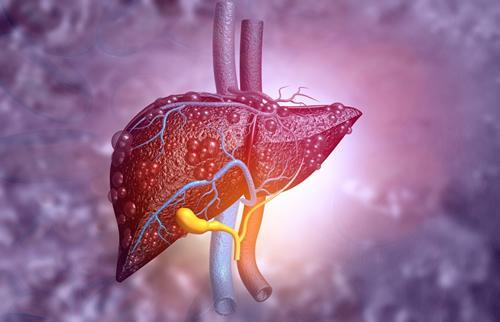 While we may not think about the liver very often, this organ plays a vital role in your digestive health and is responsible for some extremely important functions within the body. This digestive organ, which is also the largest organ within our body, is responsible for about 500 bodily functions designed to keep you healthy. The liver doesn’t just store important nutrients including iron but it also is responsible for detoxifying the body. Unfortunately, there are hundreds of diseases that can impact the health of the liver.
While we may not think about the liver very often, this organ plays a vital role in your digestive health and is responsible for some extremely important functions within the body. This digestive organ, which is also the largest organ within our body, is responsible for about 500 bodily functions designed to keep you healthy. The liver doesn’t just store important nutrients including iron but it also is responsible for detoxifying the body. Unfortunately, there are hundreds of diseases that can impact the health of the liver.
Types of Liver Disease
There are many diseases that can impact the health of the liver. These include:
- Infections such as hepatitis A, B and C
- Autoimmune disorders (e.g. autoimmune hepatitis; primary biliary cholangitis)
- Liver cancer
- Inherited diseases such as Wilson’s disease and hemochromatosis
- Other diseases and causes such as alcohol abuse or drugs (e.g. fatty liver disease)
Symptoms of Liver Disease
Unfortunately, many people with liver disease never even know that they have it. In fact, people may even have severe and permanent scarring (known as cirrhosis) and still never experience symptoms. With that said, there are certain signs and symptoms that may develop in those with liver disease. These signs include:
- Extreme fatigue and exhaustion
- Itchy skin
- Yellowing of the eyes and skin (e.g. jaundice)
- Pale stools
- Dark urine
- Swelling of the abdomen
- Confusion and brain fog
If you are experiencing these symptoms it’s important that you seek a gastroenterologist for further evaluation.
Treating Liver Disease
The type and severity of your liver disease will play a primary role in creating your treatment plan. One of the major areas that we will look at is your lifestyle. Lifestyle modifications can greatly improve certain types of liver disease. Lifestyle modifications include:
- Avoiding alcohol
- Quitting smoking
- Eating a healthy diet
- Getting moderate exercise 3-4 times a week
- Avoiding red meat, sugar and processed carbs
- Losing excess weight if obese or overweight
Making changes to your diet and lifestyle can minimize damage to the liver and also help those with liver diseases caused by medications or alcohol dependency. In more severe cases, a liver transplant may be necessary for those with advanced stages of cirrhosis. There are certain prescription medications that are prescribed to cure certain chronic forms of hepatitis; however, most cases of hepatitis A and B do not require treatment. Antiviral medications are used to treat hepatitis C.
If you are noticing warning signs or symptoms of liver disease, or if you have questions about keeping your liver healthy, a gastroenterologist can answer your questions and provide you with the care and treatment you need if you do have liver disease.
